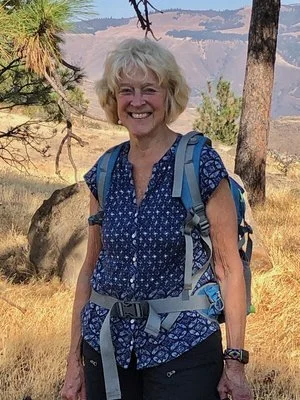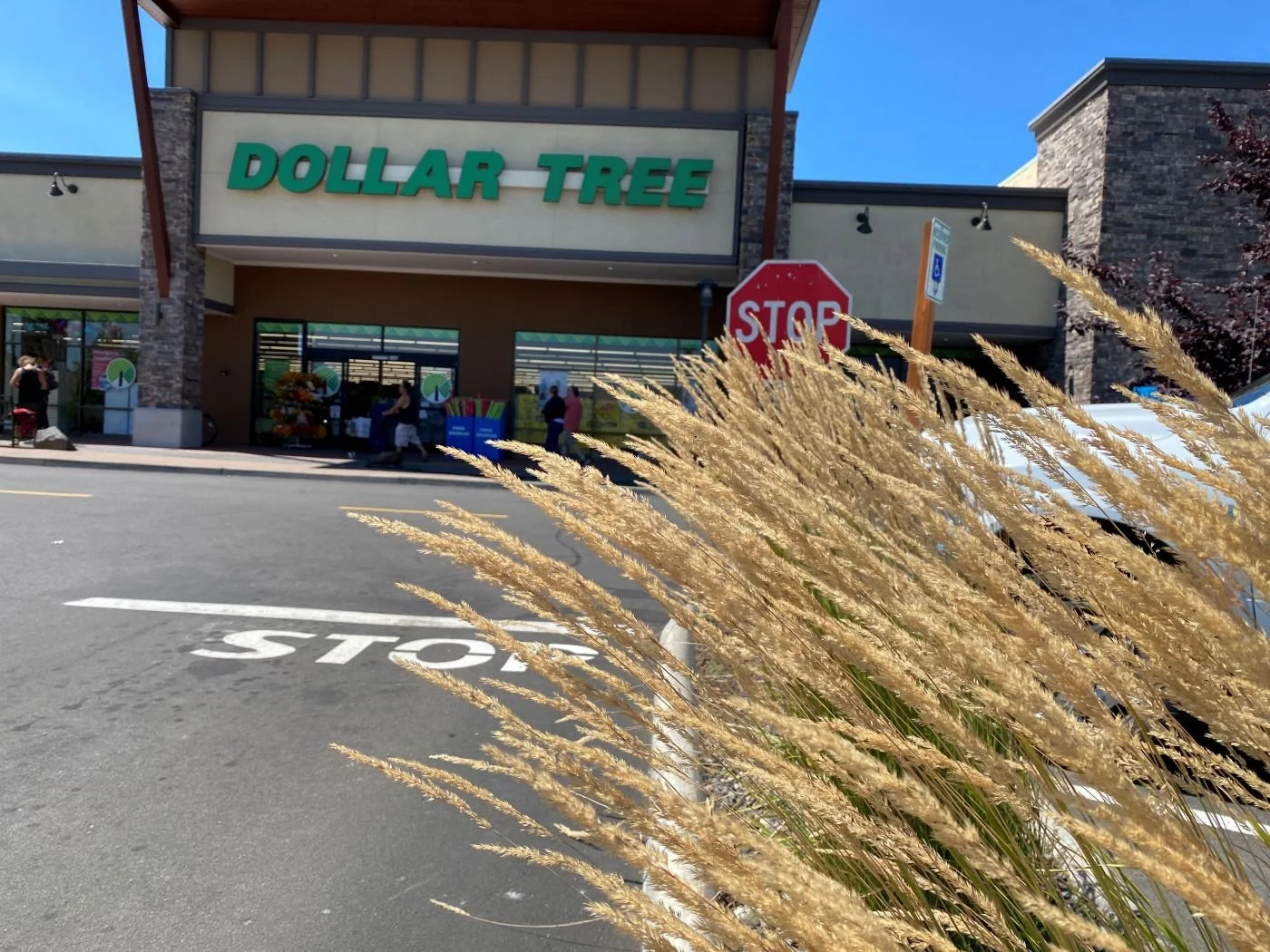Column: Sandals, Kittens, and The Art of Being Selfless
Nancy Turner
By Nancy Turner
The saleswoman at the counter had already told him twice: “Manuel, numero cuatro!” He simply stood there in front of the counter, the cuff of his faded shorts hanging below his knees and his white T-shirt snug around his pudgy eight-year-old chest. His thick black hair cut blunt, stood rigid and strong around his brown face. His bare feet were round, smooth, and intimate with the earth. He cradled a roll of peso coins in his palm. As he counted he methodically tipped each individual peso, moving his lips as he fingered each coin. A plastic bag protecting a pair of new white rubber sandals with red straps lay on the counter.
The cement ceiling of the tienda was low, making the store interior seem even smaller than it was. Wide metal shelves displayed basic food and cooking supplies, alcohol, as well as household items, clothing, and shoes. They formed narrow isles from the front of the store to the coolers in the back. The air was hot and sticky, smelling of bananas, onions, and garlic.
“Manuel! Numero cuatro,” la senora called out again, sounding exasperated. With his limited peso supply, he was trying to buy a pair of small, inexpensive sandals. I remembered how I had insisted that my children purchase shoes “to last” and “to grow into.”
The boy traipsed to the back of the store and returned dangling the size four from his fingers. With downcast eyes, he placed the shoes on the floor, stood up, and sighed deeply. He bowed his head and counted his coins. He looked up at la senora and attempted to bargain: “veintiocho.”
She heaved a sigh and said no to his twenty-eight peso offer. He hunched and counted again. Maybe he had miscounted. Maybe this time he’d find thirty-five pesos.
I had come to Sayulita as a tourist. It’s a small Mexican village nestled between the Sierra Madre Mountains and a palm-fringed bay of the Pacific Ocean. Beach sand and lazy dogs drifted along the meandering cobblestone streets. None of the buildings managed to rise higher than two stories, but what they lacked in height they made up for in color. Walls of tangerine, crimson, and royal blue leaned against ones of canary, jade, and lavender. Worn fiberglass fishing boats lay beached randomly just above high tide and smelled of fish, sweat, and motor oil.
A big storm brewed out at sea and rumor had it that it would hit shore in a few hours. Not knowing how long I might be housebound, I was in the tiny store stocking up on groceries. I piled rice, tortillas, cheese, coffee, papaya, and eggs on the counter. I pondered the discrepancy between my material wealth and Manuel’s. I could easily pay the entire cost of the sandals, which for me amounted to a mere three and a half dollars. But should Manuel pay what he had and then I make up the difference? I could see what he needed, and I wanted to be generous, but I didn’t want to undermine his integrity. I looked at La Senora and nodded toward the boy.
“Yo quiero ayudar,” I said, placing seven pesos on the counter, telling her I wanted to help him. I spoke to Manuel in halting Spanish. “Siete pesos, para los zapatos. Feliz Navidad!” though Christmas was months away. Manuel quickly jingled his row of coins into the outreached hand of la senora. He lifted his face and beamed a radiant smile into my eyes. “Gracias,” he said. He tossed another glance at la senora, and scurried out of the tienda with the shoes still wrapped in plastic, gripped tightly in his fist.
I stepped out into the bright sunlight, climbed into my rental car, and headed back to my hillside bungalow. I reflected on what had just transpired. Was it enough? I wondered if I should give money to his school. Something meaningful. Something significant. I remembered the line about not giving someone a fish, but teaching them how to fish. I didn’t know anything about Manuel’s school and besides, I was leaving town soon. But these thoughts troubled me. What motivates us to stop clinging to what we have, realize we have enough, and give freely.
What happened between Manuel and me was a win-win situation. When the opportunity arises to be generous, it feels good. Sometimes people in my home town pay for the coffee of the person next in line. It’s a token gift but it seems to leave everyone feeling good. If you see someone in the grocery store struggling to come up with the cash for everything in their cart, that’s an opportunity to lend a hand. There are many organizations to donate money, and these worthy causes are important. However, I must say it’s fun when there’s a spontaneous chance to be generous.
The storm arrived suddenly in Sayulita the next morning. Hurricane winds whipped the ocean into a tumultuous frenzy. For two hours it blew, knocking over trees and power lines, breaking windows, and scattering roof tiles. Then, as quickly as it had begun, it ceased. The air became silent. From the patio, I gazed at a muddy sea attempting to calm itself. Butterflies emerged from nowhere to flit around chartreuse flowers in the garden, and four frigate birds with luxuriously long wings circled overhead, tracing invisible symbols of infinity.
Most of the time we see needs so great we feel overwhelmed and our capacity to alleviate suffering seems insufficient and insignificant. We close our eyes to the little opportunities to be generous. With Manuel, I was able to give open-handedly, but not so extravagantly that I damaged his dignity; and Manuel gave freely to me, the gift of his priceless smile.
We have people in need right here in the Gorge. I was recently in the Dollar Tree Store looking at toys for my new kitten. A young woman came up to me and asked if I had a cat. Then she teared up. Turned out she had taken in three stray kittens and her dog had bitten one of them, pushing its eyeball out. Her husband shoved the eye back into the socket. I insisted she go home, get the kitten and take it to the local veterinary hospital. Otherwise, it might die from infection. She said she and her husband couldn’t afford to pay the fees. I offered to meet her at the clinic and pay whatever it cost to save her kitten.
The kitten received the care it needed and the young woman was overflowing with gratitude. She loved that little guy. I paid the bill. There was a man in the clinic watching what had transpired. Remarkably, he gave his name and phone number to the clinician, saying he’d pay the kitten’s future medical expenses.
So much of what we read or hear in the news is negative. The mass shootings, the drowned refugees, the starving people in so many countries, destruction of natural habitats. It’s a long list. Yet, as the Dalai Lama once said, there are more acts of kindness than evil, but they don’t usually make it into the news.
Like most people, I generally look out for myself and get stuck in my routines. I get overwhelmed seeing homeless people who need so much. I don’t know where to start. So I don’t do anything. Yet, sometimes being up close and personal to a dire situation draws me out of my rut. Compassion moves me to want to do whatever I can to help. It always feels good. In fact, it puts a smile on my face for the rest of the day, just like Manuel’s. Kindness is its own reward.






